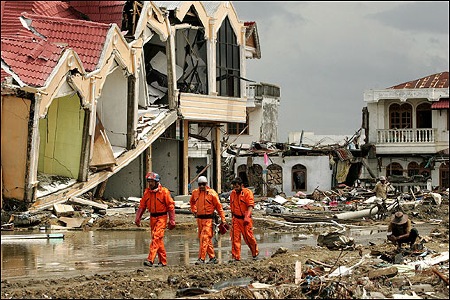FAQs
Why is AidWEST unique?
Our volunteers fill two important needs. First, we are a conduit for donated medical supplies and humanitarian items. In situations of medical emergency, AidWEST provides the most time-consuming yet critically important task of wound treatment. AidWEST is envisioned as having a “ready reserve” of trained first-responders that can speedily move, independently or in small groups, via whatever is the best and safest route to clinics and temporary hospitals, and “do whatever it takes” to work with the numerically few doctors and nurses, allowing these professionals to focus on the most demanding procedures. We are also unique in our medical care delivery, in that other groups set up clinics and our volunteers go tent-to-tent. This was found to be most appropriate to tent city (IDP camp) situations, where people do not have the ability or peace of mind to leave their tents to wait in long lines for care. It also allows our volunteers to assess the complete situation, from the patients’ point of view.
What are some of the accomplishments of the volunteer team members?
Who sponsors, supports and interacts with AidWEST?
At present we are meeting with various organizations to generate some working funds. Each of the volunteers pays their expenses out of their own pocket–although some have reached out on their own to groups or individuals for personal donations. We also will be working in collaboration and communication with other entities, such as government departments, religious groups, and domestic and international organizations. In Latin America, we have interacted with and under the guidance of the Pan American Health Organization, Dominican Republic Ministry of Health, University of Chicago, and a consortium of faith-based groups from USA and Europe.
Do AidWEST volunteers replace medical professionals?
No, the actions of our medical volunteers are focused on three areas:
(1) time-consuming and labor-intensive bandage removal/wound cleaning/bandage dressing,
(2) dispensing of antibiotics and pain relieving medicines during the initial weeks after a large-scale catastrophe and
(3) long-term care involving physical and emotional therapy. The work of our volunteers simply allows medical professionals an opportunity to focus on the most difficult cases. Our volunteers are categorized in three levels, ranging from “Support” to “Medical Professional,” with the higher level having extensive experience and medical training from working as an EMT, first responder, registered nurse, or anesthesiologist.
What kind of an organization is AidWEST?
Presently, we are awaiting approval of our 501(c)3 non-profit status, but were recognized in 2011 as a non-profit by the State of Georgia, USA. We are like the Red Cross or CARE in that we support the humanitarian and medical goals of our host country, and integrate our goals within government guidelines. In April of 2010, we were officially recognized by the United Nations and World Health Organization as part of the Health Cluster serving Haiti since the earthquake.
Where does AidWEST serve?
Sadly, as recent natural disasters show, there are many vulnerable areas in the world where a humanitarian crisis can occur. Nicaragua, for example is “overdue” for their typically 40-year cycle of catastrophic earthquakes. Our organization will best serve by becoming proactive, acquiring key contacts, building inventories of supplies, mapping routes and contingencies, and growing a pool of qualified and motivated volunteers who are able to move, in just a few hours, to wherever victims are in urgent need. AidWEST is envisioned as providing aid to any developing nation in the world, with the volunteer resource coming from both the USA and the same region, in order to reach the injured as quickly as possible.

Chile’s February 2010 earthquake also generated a series of tsunamis, which devastated the coastal areas. (Image courtesy Globe Photos.)
